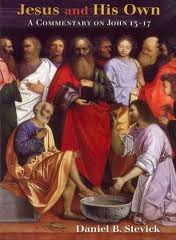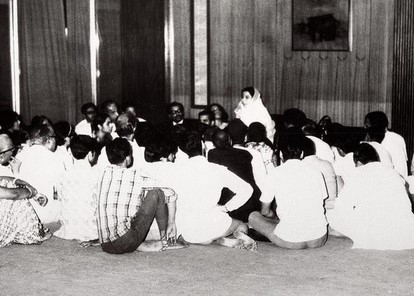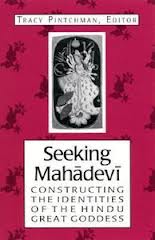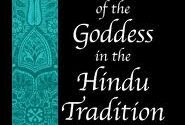PROMISED PARACLETE
“The Paraclete represents direct, intimate divine involvement, supporting and teaching believers and challenging the world, as Jesus did.”

“The Paraclete, Jesus’ successor, is described in personal terms. (The noun and associated pronouns are masculine gender, which does not denote maleness. In fact, there is an old tradition in Christian theological and spiritual writing of referring to the Holy Spirit as feminine. The present study uses feminine pronouns for the Holy Spirit.) Jesus and his closeness are not to be replaced by a vague sort of something. The Spirit is described in these johannine passages in terms of the relational life of persons; she will continue to do many things that Jesus has done. The Paraclete represents direct, intimate divine involvement, supporting and teaching believers and challenging the world, as Jesus did.”
The Paraclete
The Term and the Role
“Jesus’ term ‘the Advocate‘ (or Paraclete; the Greek word is parakletos), enters the text at 14:16 with no preparation and no explanation. Even first-century readers might have been puzzled, for although they would have known the word, its common meanings might not have made clear what the Evangelist was saying by it. As he took over a word with a complex history and usage, he drew on some, but not all of its prior, largely secular meanings, and his way of using the term stretched it into new significance. He asked his readers to grasp his word on the terms set by his usage. Robert Kysar remark that the Paraclete is one of the Evangelist’s ‘innovative concepts.’
The Greek word combines para (alongside) and kalien (to call). It speaks of one who is called to the side of another. In Classical Greek it could mean an encourager, as when Xenophon speaks of exhorting men to the fairest deeds (Anabasis 31.24). The term also had a legal setting, speaking of one who enters a case as a friend of the accused or one who entreats or appeals in behalf of another. Philo spoke of the Jews in Alexandria, who were ill-treated, seeking a parakletos to carry their cause to the Emperor Gauis… Although one of the johannine Paraclete passages, 16:7-11, draws on the forensic background of the term parakletos, the other passages suggest broader, more personal senses, referring to one who consoles another, befriends another, guides or teaches another, or to one who publicizes the truth of things. Translators have tried many equivalents for the Evangelist’s term: Advocate (the choice of the NRSV), Comforter, Convincer, Counselor, Encourages, Friend, Helper, Teacher. Some have simply transliterated: ‘Paraclete.’ John Reumann judges that ‘No one English word catches all the nuances in the Paraclete passages.'”
Jesus and His Own: A Commentary on John 13-17
Daniel B. Stevick, Wm. B. Eerdmans (2011) pp. 284-85
“The Paraclete, Jesus’ successor, is described in personal terms. (The noun and associated pronouns are masculine gender, which does not denote maleness. In fact, there is an old tradition in Christian theological and spiritual writing of referring to the Holy Spirit as feminine. The present study uses feminine pronouns for the Holy Spirit.) Jesus and his closeness are not to be replaced by a vague sort of something. The Spirit is described in these johannine passages in terms of the relational life of persons; she will continue to do many things that Jesus has done. The Paraclete represents direct, intimate divine involvement, supporting and teaching believers and challenging the world, as Jesus did.
In speaking of the Paraclete, the Evangelist often uses triadic terms. He sets the Spirit in relation to the Father and the Son; the Paraclete holds a place in the complex divine life. The writer puts the matter in different ways: The Spirit is given to the disciples by the Father on the request of Jesus (14:16), or she is sent from the Father in Jesus’ name. (14:26). The Paraclete is sent by the Son from the Father, or she comes from the Father (15:26). Trinittarian questions and the categories for discussing them would, of course, only develop in later Christian thought, and when they did, the active, personal terms of the johannine Paraclete sayings provided the early theologians with rich (although not umambigious) material.
The Farewell does not describe the divine pneuma as an all-pervading Geist, but as specific revelatory act and presence. The Paraclete will be sent, as Jesus was sent (14:26). She will come, as Jesus came and as Jesus and the Father will come (14:23). To the world, disordered as it is, the Spirit is an alien presence which it cannot receive or know (14:17). The Evangelist describes an advent of the Spirit. The Spirit will witness to the world (15:26), showing it to be in the wrong (16:8-11)-as Jesus witnessed to the truth and against the world’s mistaken self-understanding (18:37). The Paraclete who will witness against the world will teach the church. As believers make their uncertain way in the world, the Spirit will impart to them things they need to know but that they cannot come to know by self-initiated inquiry (14:26; 16:13-15).
Such expression locate the Spirit with the transcendence and free initiative of the divine. The johannine idiom does not present the Paraclete as an immanent, latent force which is progressively brought to articulateness and power by an inner drive of all things towards their fulfillment. The Spirit is not depicted in the Fourth Gospel as a diffused power that does everything in general. The divine Helper is not a symbol for the intrinsic relatedness of the creation to God. Rather, the Farewell Discourses describe the Paraclete as a speaker and an actor, a partisan, engaged for specific things and against others. The Spirit is the Spirit of God, the Spirit of Jesus, acting within the followers of Jesus and through them upon the refractory world.
While the Paraclete is related to the divine life, she is at the same time related to humanity-an intimate strengthener, corrector, reminder, instructor. The Spirit is God in you (14:17) and the author of 1 John says, The anointing that you received from him abides in you (1 John 2:27). The Spirit is a participation of the transcendent God in redeemed humanity and of redeemed humanity in God.
In the johannine description of the Spirit, these two things are held together. The one who is inward becomes inward from beyond. The one who is God-in-ourselves is not-ourselves. The Spirit is, in John V. Taylor’s fine phrase, ‘the beyond in the midst.'”
Jesus and His Own: A Commentary on John 13-17
Daniel B. Stevick, Wm. B. Eerdmans (2011) pp. 290-91
“The Paraclete will come (15:26; 16:7, 8, 13) as Jesus has come into the world (5:43; 16:28; 18:37)…
The Paraclete will take the things of Christ (the things that are mine, ek tou emou) and declare them (16:14-15). Bishop Fison describes the humility of the Spirit, ‘The true Holy Spirit of God does not advertise Herself: She effaces Herself and advertises Jesus.’ …
It is by the outgoing activity of the Spirit that the divine life communicates itself in and to the creation. The Spirit is God-in-relations. The Paraclete is the divine self-expression which will be and abide with you, and be in you (14:16-17). The Spirit’s work is described in terms of utterance: teach you, didasko (14:26), remind you, hypomimnesko (14:26), testify, martyro (15:26), prove wrong, elencho (16:8), guide into truth, hodego (16:13), speak, laleo (16:13, twice), declare, anangello (16:13, 14, 15). The johannine terms describe verbal actions which intend a response in others who will receive (lambano), see (theoreo), or know (ginosko) the Spirit. Such speech-terms link the Spirit with the divine Word. The Spirit’s initiatives imply God’s personal engagement with humanity. The Spirit comes to be with others; the teaching Spirit implies a community of learners; forgetful persons need a prompter to remind them; one testifies expecting heed to be paid; one speaks and declares in order to be heard. The articulate Spirit is the correlative of the listening, Spirit-informed community.
The final Paraclete passage closes with a threefold repetition of the verb she will declare (anangello), 16:13-15. The Spirit will declare the things that are to come (v.13), and she will declare what is Christ’s (vv. 14, 15). The things of Christ are a message that must be heralded…
The intention of the Spirit of truth is the restoration of an alienated, deceived humanity… The teaching role of the Paraclete tends to be remembered as a major emphasis of the Farewell Discourses, yet only 14:26 says She will teach you all things. (Teaching is, however, implied when 16:13-15 says that the Spirit will guide you into all truth, and will speak and declare.) Franz Mussner remarks that the word used in 14:26, didaskein, “means literally ‘teach, instruct,’ but in John it nearly always means to reveal.”
Jesus and His Own: A Commentary on John 13-17
Daniel B. Stevick, Wm. B. Eerdmans (2011) pp. 292-7

Messiah-Paraclete Shri Mataji
“I was also born in a Christian family and I was shocked the way they interpreted Christ’s life and the way they talked about it with great authority. Books and books were written. They give big, big sermons. I thought there’s no truth in it what they are talking. Even my father felt the same way, because all these books came much after the authors of these books. Secondly, those who tried to write it were not authorized to do that. They were not spiritual people. They all wanted to have power; they wanted to have power in religion.
The power in religion is inside and that should be awakened. I must say, thanks to the Sufis of this country and other countries that people still think that there is something beyond all these words and talks and books.”
The Paraclete Shri Mataji
Easter Puja, Istanbul, Turkey—April 23, 2000
“Eschatology is a part of theology, physics, philosophy, and futurology concerned with what are believed to be the final events of history, the ultimate destiny of humanity — commonly referred to as the ‘end of the world’ or ‘end time’. The Oxford English Dictionary defines eschatology as ‘The department of theological science concerned with ‘the four last things: death, judgement, heaven and hell’.’ In the context of mysticism, the phrase refers metaphorically to the end of ordinary reality and reunion with the Divine. In many religions it is taught as an existing future event prophesied in sacred texts or folklore. More broadly, eschatology may encompass related concepts such as the Messiah or Messianic Age, the end time, and the end of days… Most modern eschatology and apocalypticism, both religious and secular, involves the violent disruption or destruction of the world, whereas Christian and Jewish eschatologies view the end times as the consummation or perfection of God’s creation of the world. For example, according to ancient Hebrew belief, life takes a linear (and not cyclical) path; the world began with God and is constantly headed toward God’s final goal for creation.” Wikipedia (Retrieved January 13, 2012)

The Paraclete Shri Mataji at the dawn (May 5,
1970) that commences the Resurrection and
fulfills the Savior’s 2000-year-old promise of
life eternal in the Kingdom of God. However,
thousands of Her disciples led by leaders
—having no faith or conviction—have refused
to declare the Good News (This Gospel of the
Kingdom shall be preached in the entire world
for a witness unto all nations. Matthew 24:1)
and Al-Naba, (The Great Announcement of
Al-Qiyamah [The Resurrection] surah 78:1-5)
to humanity since. And May 5, 2020 will mark
five decades of an unprecedented collective
rejection of the Good News by Her disciples
(Sahaja Yogis), a blasphemy that Jesus clearly
warned 2000-years ago: “And whoever speaks
a word against the Son of Man will be forgiven,
but whoever speaks against the Holy Spirit will
not be forgiven, either in this age or in the age
to come.” (Matthew 12:32).”
“Christ didn’t say that, ‘I am the Destination.’ He said, ‘I’ll send you the Holy Ghost; I’ll send you a Comforter; I’ll send you a Redeemer; I’ll send you a Councilor.’ He talked about the future.”
The Paraclete Shri Mataji
“But to communicate with the people—to communicate with the Spirit, to understand the Kundalini, the vibrations, and their different decodings and all that—the Holy Spirit had to come; with Her mouth, and with Her voice, and with Her intelligence that is intelligible to you, with the knowledge, and everything.
Otherwise it is not possible to communicate and that’s why if somebody has to come you have to just recognize. Recognition is the best way of understanding the powers that are given to you.
You have been given powers, no doubt. But these powers, even if somebody gets Realization (baptism), like Buddha got his realization he thought there is no God. He did not believe in God because he just got Realization (baptism) through a formless, formless thing you can say. And he just did not know. He did not talk of Kundalini. Then he did not talk of God actually, and he started talking only of the ascent.
So somebody has to be there to give you the complete picture. You get Realization, you get vibrations, but then what? What about the complete? And for that, the Holy Ghost has to take a form. All right?
May God bless you.”
The Paraclete Shri Mataji
Sydney, Australia—April 7, 1981
“The Paraclete’s expressive teaching, declaring, witness-bearing, and judging actions exhibits the Paraclete’s role as the Spirit of Truth… The intention of the Spirit of truth is the restoration of an alienated, deceived humanity…
In relation to the church, the Spirit is counselor, teacher, and guide; but in relation to the world, which is carried away in untruth, the Spirit goes on the offensive: She will prove the world wrong (16:8). Christians who hear the Spirit described as ‘Advocate’ tend to think of the divine Paraclete as one who stands with them, taking their part before God. They have an image of a court in which God is judge, and weak, erring persons are in need of a partisan, forceful representative if their case is to carry. But such an understanding of the Spirit’s advocacy should not be read into this Paraclete passage. The Evangelist might think that such a construction of his terms represented, to say the best for it, a half-converted understanding. When he uses the legal aspect of his Paraclete terminology most fully (in 16:7-11), he depicts the Paraclete as a prosecutor, a power that is effective on the world, contending against it and in behalf of God. A verdict for God is sought from humanity. The urgent need, with respect to God and the world, as the Evangelists describes it, is not that humanity be represented before God, but that God’s truth and judgment be set before a world that is largely closed against them. The Paraclete gives the case for God her potent advocacy.” (Stevick 2011, 295-96)

The Paraclete Shri Mataji at the dawn (May 5, 1970) that commences the
Resurrection and fulfills the Savior’s 2000-year-old promise of life eternal
in the Kingdom of God. However, thousands of Her disciples led by leaders
—having no faith or conviction—have refused to declare the Good News
(Besorat HaGeulah Judaism/ Al-Naba Islam) of the Resurrection
(HaTechiyah [Torah]/ Al-Qiyamah [Quran]). May 5, 2020 will mark five
decades of an unprecedented, collective rejection by Her disciples (Sahaja
Yogis) that has no parallel in history.
“We are now in the Blossom Time, as I call it, because many flowers are born and they are to become the fruits. This is the Resurrection Time, which is described in all the scriptures. But it’s not like this, the way they had described us. Something wrong with them that all the dead bodies who are in the graves will come out of the graves. I mean, how much is left out of them, God knows. Must be some bones or maybe some skulls there. So they’ll come out of the graves and they will get their Resurrection!!!? This is a very wrong idea.”
The Paraclete Shri Mataji
Philadelphia, USA—October 15, 1993
“Eschatology … is not exactly your everyday word. If you had read every word of this newspaper every day for the last five years, you would have encountered it fewer than 20 times. Half those times were somehow referring to fundamentalist religious beliefs about the final battles between good and evil, the coming of Jesus (or other messianic figures), the Last Judgment and the eternal assignment of the saved and the damned to heaven or to hell… In the 1960s, his ‘Theology of Hope,’ subtitled ‘On the Ground and the Implications of a Christian Eschatology,’ became one of the most widely translated and read theological works, stirring enthusiastic responses among Roman Catholics as well as Protestants, and among religious radicals in the developing world as well as dissident Marxists in Eastern Europe. At the core of this theology were the principles that human consciousness is not shaped only by the past and present but also by anticipation of the future, that biblical revelation is centered on God’s promises, and that hope for the future does not rest on extrapolations of past or present trends but on something truly beyond them, namely those divine promises… The goal of a final judgment, in this interpretation, is not reward and punishment but victory over all that is godless, which he calls ‘ great Day of Reconciliation.’ Professor Moltmann argues for the universal preservation and salvation not only of humans, as individuals and as members of groups, but also of all living creatures. It has been ‘ fatal mistake of Christian tradition in doctrine and spirituality,’ he argues, to emphasize the ‘end of the old age’ rather than ‘the new world of God,’ the beginning of the ‘life of the world to come.'” (Steinfils, New York Times 2007)

Spirit-Paraclete
“Of course there are some absurd things which grew with misinterpretation and interference from unholy people, which are common in these religions. For example, Jews, Christian and Muslims believe that when they die their bodies will come out of their graves and they will all be resurrected at the Time of Resurrection, at the Time of Last Judgment, at the Time of Qiyamah. It is illogical to think what will remain inside those graves after five hundred years. Nobody wants to think and understand that it is not the body but the soul that will come out of these bodies, be born again as human beings and be saved through Qiyamah and Resurrection.”
The Paraclete Shri Mataji
The Message of Christ, London, UK December—10, 1979
“The world needs to be convinced of the truth about itself — something it cannot come to on its own terms. Yet without that truth, the world is forever self-deceived. The showing of the world to itself is the mission of the Paraclete, when she comes. The Spirit comes (as in 15:26); she engages actively with the world. As Jesus had been sent and came, so the Spirit.” (Stevick 2011, 252)
“Though you can understand that Mother’s Love makes it very easy for you to get to your Realization (baptism) and that the whole story of Last Judgment—which looks such a horrifying experience—has been made very beautiful and very tender and delicate, and does not disturb you… All this, if it is told without Realisation, has no meaning. But people were given great ideas about it and also were promised that ‘one day your resurrection will come.’ It is the greatest happening for you. It is the greatest event of your life and one must consider it is very fortunate that you have been able to achieve it.”
The Paraclete Shri Mataji
Kundalini And Kalki Shakti
Bombay, India—September 28, 1979
“The writer’s general thesis is clear: The world has gotten things wrong — things that it must get right if it is to understand itself and carry out its appointed work. But the self-enclosed world has no vantage from which to see itself; its efforts to gather the truth about itself from itself are futile. No observer, taking a point of view within the world, can be freed of that darkening which pervades both the object of inquiry and the inquirer. That is the condition of the world — to find itself a continual object for its own investigation, to have the self-reflective capacity for examining itself, but always to miss the truth about itself. Lacking self-understanding, the actions of the world easily become inhumane and unjust. When the world comes to a new understanding of itself, it will be through the revealing work of God’s Spirit.” (Stevick 2011, 252)
“What Christ did there are many people; I read the other day one book saying that He never resurrected himself. I must say they scientifically, they proved scientifically. Can you imagine? How can you prove scientifically I don’t understand…
But this is the trouble that they try to prove everything scientifically. You cannot prove Christ’s resurrection scientifically. That’s why you cannot deny it either…
But it is such a long story started thousands of years back, and today it is just reaching its climax. The fruit is just going to be formed. it’s just the Blossom Time has come for this story, and if the seekers co-operate I am sure it will work out. Have all the hopes. May God bless you.”
The Paraclete Shri Mataji
All Is Beautifully Made, Hampstead, U.K.—April 22, 1982
“According to John, when Jesus says (14, 16): And I will pray the Father, and he will give you another Paraclete’, what He is saying is that ‘another’ intercessor will be sent to man, as He Himself was at God’s side on man’s behalf during his earthly life. According to the rules of logic therefore, one is brought to see in John’s Paraclete a human being like Jesus, possessing the faculties of hearing and speech formally applied in John’s Greek text, Jesus therefore predicts that God will later send a human being to Earth to take up the role defined by John i.e. to be a prophet who hears God’s words and repeats his message to man. This is the logical interpretation of John’s texts arrived at if one attributes to the words their proper meaning.” (Bucaille, Pannell 2001, 115)
“The five Paraclete sayings in chapters 14 through 16 deal with the Spirit of Truth; in an unparalleled treatise, John describes the Paraclete as the ‘new Advocate’ who takes the place of the ascended Christ. The primarily work of that Spirit, as we saw extensively, is to teach us the whole truth about Jesus. But in the fifth saying, Jesus tells his disciples, ‘the Spirit of truth … will guide you to all truth.’ (John 16:13) This seems to include more than a deeper intellectual understanding of the truth; that is, it also involves teaching in a way of life in conformity with Jesus’ teaching.” (Kinn 2004, 102)

The Paraclete Shri Mataji
Mar 21, 1923—Feb 23, 2011
“Even in the Judaism or when they believe in the coming of the Saviour for their salvation, even they have talked about. So it is all described in Koran. There’s a complete surah describing about ‘The Sent One’, means the Avatar, means ‘The Incarnation’. And also said that you won’t believe, you won’t accept and all those things.
So now, once you are realized souls, then only you start seeing that all this talk is futile. You have to become a realized person. If you get your realization, then only you can get over the superficial illusions and you can go deep into it. All these illusions are there in all the countries, in all the religions and that’s why there is a problem and we have seen people suffering from the pangs of fundamentalism.
And now the main problem is fundamentalism and that comes out of ignorance — ignorance and also selfishness because people want to say that “This is my religion, this is my prophet, this is my guru, this is my master” and all those things, but actually they don’t belong to any party, to anyone. They belong to the whole world. One can understand if you establish something for your protection from other parties, but to start yourself in a way to establish a falsehood surprisingly — very surprising, I don’t understand human beings. For such falsehood, they are very happy to join and so many will join. Without even thinking, knowing, they’ll all club together for a nonsense like that. For a nonsense, human beings always club together, but for a sensible thing they don’t want to understand.”
The Paraclete Shri Mataji
January 7, 1990—India
“By the late first and early second centuries when the Gospels of Matthew, Luke, and John were written, the feminine Ruach Ha-Qodesh was understood as the neuter Greek Pneuma Hagios. The Holy Spirit was no longer recognizable as the Hochmah of Yeshua. Instead it (no longer she) guided the churches through its “prophets.” In the Gospels she (it) had become a kind of deus ex machina that moved the narratives from situation to situation. In Johannine tradition the Ruach of God became the Ruach of Christ as the (Greek masculine) Parakletos or “Comforter.”58
58. To add insult to injury, the neutered Holy Spirit appears as the masculine Paraclete in John’s Gospel. He still has the function of the Ruach Ha-Qodesh in that he guides and exhorts disciples to strengthen them. The final sex-change operation was completed when St. Jerome translated the term Holy Spirit for his Latin Vulgate Bible that became standard for a thousand years. In keeping with the marginalization of women’s leadership in the Church, he made the Holy Spirit masculine Spiritus Sanctus. That worked especially well with Trinitarian theology—Father, Son, and Holy Ghost, or the Three Guys.” Keizer 2010, 44
The fulfillment of eschatological instruction promised by Jesus
“The original meaning of the word ‘apocalypse’, derived from the Greek apokalypsis, is in fact not the cataclysmic end of the world, but an ‘unveiling’, or ‘revelation’, a means whereby one gains insight into the present.” (Kovacs, 2013, 2)
An apocalypse (Greek: apokalypsis meaning “an uncovering”) is in religious contexts knowledge or revelation, a disclosure of something hidden, “a vision of heavenly secrets that can make sense of earthly realities.” (Ehrman 2014, 59)
“An apocalypse (Ancient Greek: apokalypsis … literally meaning “an uncovering”) is a disclosure or revelation of great knowledge. In religious and occult concepts, an apocalypse usually discloses something very important that was hidden or provides what Bart Ehrman has termed, “A vision of heavenly secrets that can make sense of earthly realities”. Historically, the term has a heavy religious connotation as commonly seen in the prophetic revelations of eschatology obtained through dreams or spiritual visions.” Wikipedia 2021-01-09

Shri Mataji Nirmala Devi (1923-2011) was Christian by birth, Hindu by marriage, and Paraclete by duty.
Total number of recorded talks 3058: Public Programs 1178, Pujas 651, and other (private conversations) 1249
“The Paraclete will come (15:26; 16:7, 8, 13) as Jesus has come into the world (5:43; 16:28; 18:37)… The Paraclete will take the things of Christ (the things that are mine, ek tou emou) and declare them (16:14-15). Bishop Fison describes the humility of the Spirit, ‘The true Holy Spirit of God does not advertise Herself: She effaces Herself and advertises Jesus.’ …
It is by the outgoing activity of the Spirit that the divine life communicates itself in and to the creation. The Spirit is God-in-relations. The Paraclete is the divine self-expression which will be and abide with you, and be in you (14:16-17). The Spirit’s work is described in terms of utterance: teach you, didasko (14:26), remind you, hypomimnesko (14:26), testify, martyro (15:26), prove wrong, elencho (16:8), guide into truth, hodego (16:13), speak, laleo (16:13, twice), declare, anangello (16:13, 14, 15). The johannine terms describe verbal actions which intend a response in others who will receive (lambano), see (theoreo), or know (ginosko) the Spirit. Such speech-terms link the Spirit with the divine Word. The Spirit’s initiatives imply God’s personal engagement with humanity. The Spirit comes to be with others; the teaching Spirit implies a community of learners; forgetful persons need a prompter to remind them; one testifies expecting heed to be paid; one speaks and declares in order to be heard. The articulate Spirit is the correlative of the listening, Spirit-informed community.
The final Paraclete passage closes with a threefold repetition of the verb she will declare (anangello), 16:13-15. The Spirit will declare the things that are to come (v.13), and she will declare what is Christ’s (vv. 14, 15). The things of Christ are a message that must be heralded…
The intention of the Spirit of truth is the restoration of an alienated, deceived humanity… The teaching role of the Paraclete tends to be remembered as a major emphasis of the Farewell Discourses, yet only 14:26 says She will teach you all things. (Teaching is, however, implied when 16:13-15 says that the Spirit will guide you into all truth, and will speak and declare.) Franz Mussner remarks that the word used in 14:26, didaskein, “means literally ‘teach, instruct,’ but in John it nearly always means to reveal.” (Stevick 2011, 292-7)
The Holy Spirit as feminine: Early Christian testimonies and their interpretation,
Johannes van Oort, Radboud University, Nijmegen, The Netherlands
Department of Church History and Church Polity, Faculty of Theology, University of Pretoria, South Africa
Paraclete, as the continuation of Jesus’ teaching, must also be understood as the fulfillment of the promise of eschatological divine instruction.”
Stephen E. Witmer, Divine instruction in Early Christianity
“Jesus therefore predicts that God will later send a human being to Earth to take up the role defined by John .i.e. to be a prophet who hears God’s words and repeats his message to man.”
M. Bucaille, The Bible, the Qur’n, and Science
“And when Jesus foreannounced another Comforter, He must have intended a Person as distinct and helpful as He had been.”
F. B. Meyer, Love to the Utmost
“The Paraclete has a twofold function: to communicate Christ to believers and, to put the world on trial.”
Robert Kysar, John The Meverick Gospel
“But She—the Spirit, the Paraclete…—will teach you everything.”
Danny Mahar, Aramaic Made EZ)
“Grammatical nonsense but evidence of the theological desire to defeminize the Divine.”
Lucy Reid, She Changes Everything
“The functions of the Paraclete spelled out in verses 13-15… are all acts of open and bold speaking in the highest degree.”
David Fleer, Preaching John’s Gospel
“The reaction of the world to the Paraclete will be much the same as the world’s reaction was to Jesus.”
Berard L. Marthaler, The Creed: The Apostolic Faith in Contemporary Theology
Bultmann calls the “coming of the Redeemer an ‘eschatological event,’ ‘the turning-point of the ages.”
G. Ladd, A Theology of the New Testament
“The Paraclete equated with the Holy Spirit, is the only mediator of the word of the exalted Christ.”
Benny Thettayil, In Spirit and Truth
“The divine Paraclete, and no lessor agency, must show the world how wrong it was about him who was in the right.”
Daniel B. Stevick , Jesus and His Own: A Commentary on John 13-17
Stephen Smalley asserts that “The Spirit-Paraclete … in John’s Gospel is understood as personal, indeed, as a person.”
Marianne Thompson, The God of the Gospel of John
“The Messiah will come and the great age of salvation will dawn (for the pious).”
Eric Eve, The Jewish context of Jesus’ Miracles
“The remembrance is to relive and re-enact the Christ event, to bring about new eschatological decision in time and space.”
Daniel Rathnakara Sadananda, The Johannine Exegesis of God
“The Spirit acts in such an international situation as the revealer of ‘judgment’ on the powers that rule the world.”
Michael Welker, God the Spirit
The Paraclete’s “Appearance means that sin, righteousness, and judgment will be revealed.”
Georg Strecker, Theology of the New Testament
“While the Spirit-Paraclete is the true broker, the brokers they rely on are impostors.”
T. G. Brown, Spirit in the writings of John
“The pneumatological activity … of the Paraclete … may most helpfully be considered in terms of the salvific working of the hidden Spirit.”
Michael Welker, The work of the Spirit
“The pneuma is the peculiar power by which the word becomes the words of eternal life.”
Robert Kysar, Voyages with John
“The gift of peace, therefore, is intimately associated with the gift of the Spirit-Paraclete.”
Francis J. Moloney, The Gospel of John
“This utopian hope, even when modestly expressed, links Jesus and the prophets to a much wider history of human longing.”
Harvey Cox, The Future of Faith
“Because of the presence of the Paraclete in the life of the believer, the blessings of the end-times—the eschaton—are already present.”
Robert Kysar, John
“They are going, by the Holy Spirit’s power, to be part of the greatest miracle of all, bringing men to salvation.”
R. Picirilli, The Randall House Bible Commentary
“The Kingdom of God stands as a comprehensive term for all that the messianic salvation included… is something to be sought here and now (Mt. 6:33) and to be received as children receive a gift (Mk. 10:15 = Lk. 18:16-17).”
G. Ladd, A Theology of the New Testament
Lessons for Living Found in Views of the Last Judgment
Beliefs
By PETER STEINFELS JAN. 20, 2007
“The image of the God who judges in wrath has caused a great deal of spiritual damage,” Professor Moltmann will be telling his listeners.
But he is not satisfied with the alternative that makes eternal destiny simply a matter of the individual’s own choice of whether to reject God. In that case, Professor Moltmann says, the Last Judgment becomes no more than “the ultimate endorsement of our free will.” God really has nothing much to do with it beyond implementing the human outcome; in short, “we are the lords, and God is our servant,” he says.
The alternative, in Professor Moltmann’s view, is to put Jesus Christ at the center of this final drama. “It is high time to Christianize our traditional images and perceptions of God’s Final Judgment,” he says.
Any Last Judgment with Christ at the center must answer the cries of human victims for justice, without simply meting out vengeance on the perpetrators of injustice, Professor Moltmann suggests. A Christian eschatological vision would involve not the retributive justice of human courts but “God’s creative justice,” which can heal and restore the victims and transform the perpetrators.
The goal of a final judgment, in this interpretation, is not reward and punishment but victory over all that is godless, which he calls “a great Day of Reconciliation.” Professor Moltmann argues for the universal preservation and salvation not only of humans, as individuals and as members of groups, but also of all living creatures. It has been “a fatal mistake of Christian tradition in doctrine and spirituality,” he argues, to emphasize the “end of the old age” rather than “the new world of God,” the beginning of the “life of the world to come.”
This resurrected life will be bodily and worldly, and its expectation, he says, should teach people to “give ourselves wholeheartedly to this life here and surrender in love” to its “beauties and pains.”
New York Times, Lessons for Living Found in Views of the Last Judgment
January 20, 2007
“But today is the day I declare that I am the one who has to save the humanity. I declare I am the one who is Adishakti, who is the Mother of all the Mothers, who is the Primordial Mother, the Shakti, the desire of God, who has incarnated on this Earth to give its meaning to itself; to this creation, to human beings and I am sure through My Love and patience and My powers I am going to achieve it.
I was the one who was born again and again. But now in my complete form and complete powers I have come on this Earth not only for salvation of human beings, not only for their emancipation, but for granting them the Kingdom of Heaven, the joy, the bliss that your Father wants to bestow upon you.”
THE MOTHER: Messiah-Paraclete-Ruh
London, UK—December 2, 1979
“I am the one about which Christ has talked… I am the Holy Spirit who has incarnated on this Earth for your realization.”
THE MOTHER: Messiah-Paraclete-Ruh
New York, USA—September 30, 1981
“But to communicate with the people, to communicate with the Spirit—to understand the Kundalini, the vibrations, and their different decodings and all that—the Holy Spirit had to come; with Her mouth, and with Her voice, and with Her intelligence that is intelligible to you; with the knowledge, and everything.
Otherwise it is not possible to communicate and that’s why if somebody has to come you have to just recognize. Recognition is the best way of understanding the powers that are given to you…
So somebody has to be there to give you the complete picture. You get Realization, you get vibrations (Ruach, Pneuma, Prana), but then what? What about the complete? And for that the Holy Ghost has to take a form. All right?”
The Paraclete Shri Mataji
Sydney, Australia—April 7, 1981
Guest: “Hello Mother.”
Shri Mataji: “Yes.”
Guest: “I wanted to know, is the Cool Breeze (Pneuma) that you have spoken about, you feel on the hands the Cool Wind of the Holy Spirit, as spoken about in the Bible?”
Shri Mataji: “Yes. Yes, yes, same thing, same thing. You have done the good job now, I must say.”
Interviewer: “Is it the Holy Spirit?”
Shri Mataji: “Yes, of course, is the Holy Spirit.”
Guest: “Aha… I am feeling it now on my hand through the [not clear]”
Shri Mataji: “It’s good.”
Interviewer: “Did you want to say anything more than that?”
Guest: “No, I just… That’s all I wanted to know because I…”
Shri Mataji: “Because you are thoughtless now. Enjoy yourself.”
Guest: “Thank you.”
The Paraclete Shri Mataji
Talkback Radio 2UE, Sydney, Australia—March 31, 1981
Second Guest: “I just want to ask Mother about a quotation from the Bible.”
Interviewer: “Yes, what’s that?”
Guest: “It says, ‘But the comfort of the Holy Spirit that the Father will send in My name would teach you all things.’ I would like to ask Her about that.”
Interviewer: “Could you just repeat the quotation again?”
Guest: “But the Comforter, the Holy Spirit, whom the Father will send in My name, will teach you all things.”
Interviewer: “And that’s from where?”
Guest: “John chapter 14, verse 26.”
Shri Mataji: “I think you should take your realization and then you will know the answer to it. Because, logically if it points out to one person, then you have to reach the conclusion, isn’t it? That’s a logical way of looking at things. But I am not going to say anything or claim anything. It is better you people find out yourself.”
Interviewer: “Does that answer your question?”
Guest: “Is the, is the Comforter on the Earth at the present time? Has the Comforter incarnated? Mataji should be able to tell us this because She said that through these vibrations on Her hands, She …”
Shri Mataji: “Yes, She is very much here and She’s talking to you now. Can you believe that?”
Guest: “Well, I feel something cool [Pneuma/Prana/Chi] on my hand. Is that some indication of the …?”
Shri Mataji: “Yes, very much so. So that’s the proof of the thing. You’ve already started feeling it in your hands.”
Guest: “Can I?”
Shri Mataji: “Ask the question, ‘Mother, are you the Comforter?’”
Guest: “Mother, are you the Comforter?”
Shri Mataji: “Ask it thrice.”
Guest: “Mother, are you the Comforter?”
Shri Mataji: “Again.”
Guest: “Mother, are you the Comforter?”
Shri Mataji: “Now, what do you get?”
Guest: “Oh, I feel this kind of cool tingling [Pneuma/Prana/Chi] passing all through my body.”
Shri Mataji: “That’s the answer now.”
The Paraclete Shri Mataji
Talkback Radio 2UE, Sydney, Australia—March 31, 1981

Shri Mataji Nirmala Devi (1923-2011): Christian by birth, Hindu by marriage and Paraclete by duty.
“The Paraclete and the disciples (vv. 25-26): The theme of departure (cf. vv. 1-6; vv. 18-24) returns. There are two “times” in the experience of the disciples: the now as Jesus speaks to them (v. 25) and the future time when the Paraclete, the Holy Spirit, sent by the Father in the name of Jesus, will be with them (v. 26). The Paraclete will replace Jesus’ physical presence, teaching them all things and recalling for them everything he has said (v. 26). As Jesus is the Sent One of the Father (cf. 4:34; 5:23; 24, 30, 37; 6:38-40; 7:16; 8:16, 18, 26; 12:44-49), so is the Paraclete sent by the Father. The mission and purpose of the former Paraclete, Jesus (cf. 14:13-14), who speaks and teaches “his own” will continue into the mission and purpose of the “other Paraclete” (cf. v. 16) who teaches and brings back the memory of all that Jesus has said. The time of Jesus is intimately linked with the time after Jesus, and the accepted meaning of a departure has been undermined. The inability of the disciples to understand the words and deeds of Jesus will be overcome as they “remember” what he had said (cf. 2:22) and what had been written of him and done to him (cf. 12:16). The “remembering” will be the fruit of the presence of the Paraclete with the disciples in the in-between-time. In v. 16 Jesus focused on the inability of the world to know the Paraclete, but in v. 26 the gift of the Paraclete to “his own” is developed. As Jesus was with the disciples (v. 25), so will the Paraclete be with the disciples in the midst of hostility and rejection (v. 16). As the story has insisted that Jesus’ teaching has revealed God to his disciples, so will the Paraclete recall and continue Jesus’ revelation of God to the disciples (v. 26).” (Harrington 1998, 412)
The Paraclete Shri Mataji
Radio Interview Oct 01 1983—Santa Cruz, USA

The Paraclete Shri Mataji (1923-2011)
Total number of Recorded Talks 3058, Public Programs 1178, Pujas 651, and other (private conversations) 1249
“What are they awaiting but for the Hour to come upon them suddenly? Its Signs have already come. What good will their Reminder be to them when it does arrive?” (Qur’n, 47:18) “As the above verse indicates, God has revealed some of Doomsday’s signs in the Qur’n. In Surat az-Zukhruf 43:61, God informs us that ‘He [Jesus] is a Sign of the Hour. Have no doubt about it…’ Thus we can say, based particularly on Islamic sources but also on the Old Testament and the New Testament, that we are living in the End Times.” Harun Yahya
Good News (An Naba) of Resurrection (Al-Qiyamah): Videos 3474, Audios 1945, Transcripts 3262 and Events 2413
“Concerning what are they disputing?
Concerning the Great News. [5889]
About which they cannot agree.
Verily, they shall soon (come to) know!
Verily, verily they shall soon (come to) know!”
surah 78:1-5 An Naba (The Great News)
5889. Great News: usually understood to mean the News or Message of the Resurrection.
Abdullah Yusuf Ali, The Holy Qur’n
Amana Corporation, 1989
[Moderator]: “Any other questions?”
[Audience]: “Pardon me for asking this question, but, earlier you talked about the Resurrection and you mentioned about the scriptures, where like in the Hindus scriptures they talk about the Kalki Avatar who will come for the Resurrection, and for the Christians, I know they talk about the return of Christ and all the religions talk about this Resurrection and the belief in the coming of the Messiah. So I just want to know since you say you are going to give the resurrection to us, what is your station?”
Shri Mataji: “In Russia?”
[Audience]: “And are you the promised Messiah? Shri Mataji, are you?”
Shri Mataji: “I see now I am not going to tell you anything about myself, to be very frank. Because see Christ said He was the Son of God, and they crucified Him. I don’t want to get crucified. You have to find out. When you become the Spirit you will know what I am. I don’t want to say anything about myself.”
THE MOTHER: Messiah-Paraclete-Ruh
Toronto, Canada—October 5, 1993
“It is the Mother who can awaken the Kundalini, and that the Kundalini is your own Mother. She is the Holy Ghost within you, the Adi Shakti, and She Herself achieves your transformation. By any talk, by any rationality, by anything, it cannot be done.”
The Paraclete Shri Mataji
“She is your pure Mother. She is the Mother who is individually with you. Forget your concepts, and forget your identifications. Please try to understand She is your Mother, waiting for ages to give you your real birth. She is the Holy Ghost within you. She has to give you your realization, and She’s just waiting and waiting to do it.”
THE MOTHER: Messiah-Paraclete-Ruh
Sydney, Australia—Mar 22 1981
“The Kundalini is your own mother; your individual mother. And She has tape-recorded all your past and your aspirations. Everything! And She rises because She wants to give you your second birth. But She is your individual mother. You don’t share Her with anybody else. Yours is a different, somebody else’s is different because the tape-recording is different. We say She is the reflection of the Adi Shakti who is called as Holy Ghost in the Bible.”
The Paraclete Shri Mataji
Press Conference July 08 1999—London, UK

Mar 21, 1923—Feb 23, 2011
Shri Mataji Nirmala Devi was
Christian by birth, Hindu by
marriage, and Paraclete by duty.
“The Paraclete represents direct,
intimate divine intervention,
supporting and teaching
believers and challenging the
world, as Jesus did. ” (D. Stevick
Jesus and His Own, 2011, 290)
“Now what is the Holy Ghost? The Holy Ghost is the Primordial Mother. But people never talked about Mother. They talked of the Father and the Son. Imagine, a father and a son and no mother. It is absurd. Have you seen any father and a son without a mother? Such an absurd situation comes in that people accepted because it’s all mental. Somebody tells you, “No, it’s a mystery, there’s no Mother,” and people accepted it.
But there has to be a Mother and this is the time of Aquarius what we call in Sanskrit as Kumbha, meaning the Aquarius which is the Kundalini, where She nourishes, where She cures you, She redeems you, She guides you, counsels you, and this is the time of the Mother. We had the time of the Father, then of the Son, and now this is the time of the Mother where She has to nourish you, where She has to take you to your ultimate goal that is the Spirit.
The consciousness itself, the way we have been moving in other directions, have been like people think that if a woman starts fighting for her life and then she is asserting the femininity. She is not.
What I’m saying is not meant for women or men. It is meant for every one of us, that we have to become like a mother. Like a Divine Mother, like a person who can nourish people, who can give them love, affection, attention, perseverance, fore-bearing.
This is only possible for a Mother to do it and that motherhood should be awakened in every human being.”
The Paraclete Shri Mataji
Public Program Day 1, Boston, United States—Oct. 11, 1983
Related Posts

SEEK ANTARYAMIN

GODDESS OF MOKSA

